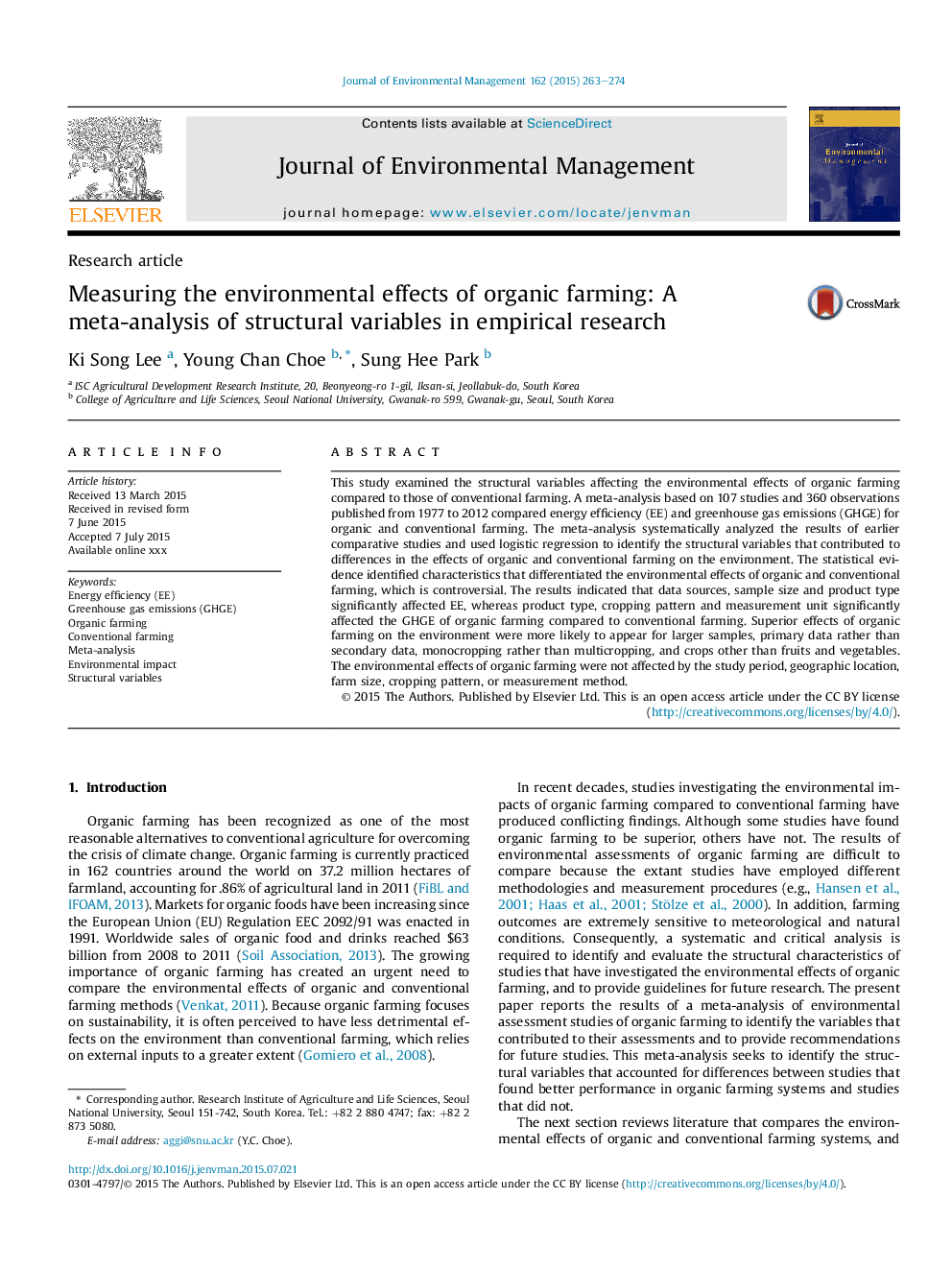| Article ID | Journal | Published Year | Pages | File Type |
|---|---|---|---|---|
| 7481551 | Journal of Environmental Management | 2015 | 12 Pages |
Abstract
This study examined the structural variables affecting the environmental effects of organic farming compared to those of conventional farming. A meta-analysis based on 107 studies and 360 observations published from 1977 to 2012 compared energy efficiency (EE) and greenhouse gas emissions (GHGE) for organic and conventional farming. The meta-analysis systematically analyzed the results of earlier comparative studies and used logistic regression to identify the structural variables that contributed to differences in the effects of organic and conventional farming on the environment. The statistical evidence identified characteristics that differentiated the environmental effects of organic and conventional farming, which is controversial. The results indicated that data sources, sample size and product type significantly affected EE, whereas product type, cropping pattern and measurement unit significantly affected the GHGE of organic farming compared to conventional farming. Superior effects of organic farming on the environment were more likely to appear for larger samples, primary data rather than secondary data, monocropping rather than multicropping, and crops other than fruits and vegetables. The environmental effects of organic farming were not affected by the study period, geographic location, farm size, cropping pattern, or measurement method.
Related Topics
Physical Sciences and Engineering
Energy
Renewable Energy, Sustainability and the Environment
Authors
Ki Song Lee, Young Chan Choe, Sung Hee Park,
